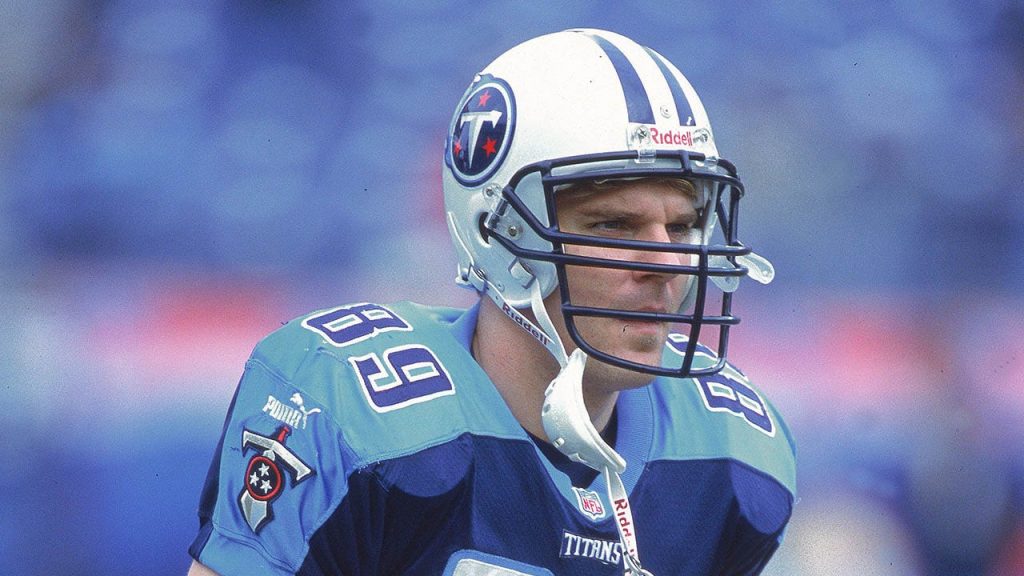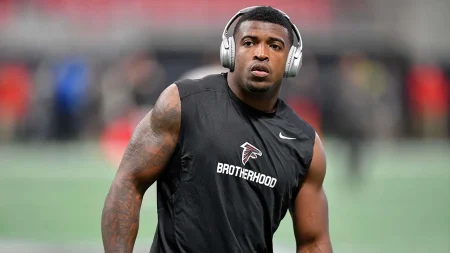Frank Wycheck, the former NFL tight end renowned for his pivotal role in the “Music City Miracle,” posthumously received a diagnosis of stage III chronic traumatic encephalopathy (CTE), a degenerative brain disease linked to repeated head trauma. This diagnosis, confirmed by researchers at Boston University’s CTE Center after Wycheck’s passing in December 2023 following a fall at his home, underscores the pervasive and insidious nature of CTE within the realm of contact sports, particularly football. Wycheck’s case adds another layer to the ongoing conversation surrounding player safety and the long-term health consequences of repeated head injuries sustained during a football career. His family, while grappling with the confirmation of their suspicions, expressed gratitude for the diagnosis, hoping it will ignite further research, preventative measures, and support systems for players and their families affected by this devastating condition.
Wycheck’s journey with CTE mirrors the experiences of many former NFL players who, after years of enduring the physical and mental demands of professional football, face an array of debilitating symptoms often attributed to the cumulative effect of concussions and subconcussive blows to the head. The 2017 study by the Boston University CTE Center, revealing the presence of CTE in the brains of 99% of studied former NFL players, starkly illustrates the widespread nature of this neurodegenerative disease within the football community. While the exact mechanisms through which CTE develops remain an area of ongoing research, the correlation between repeated head trauma and the disease’s progression is increasingly evident. Wycheck’s diagnosis further strengthens the link between football-related head injuries and the development of CTE, highlighting the urgent need for enhanced safety protocols and long-term care for affected individuals.
The symptoms experienced by Wycheck during his later years paint a poignant picture of the insidious effects of CTE. His family initially struggled to understand the changes they observed, attributing his increasing isolation, mood swings, impulsivity, and unreliability to factors other than a neurological condition. The lack of readily available information and support resources for families of former NFL players further complicated their ability to recognize and address the evolving symptoms. Deanna Wycheck Szabo, Wycheck’s daughter, described the family’s retrospective understanding of their father’s struggles, recognizing that his behavior stemmed from the neurological damage inflicted by years of playing football. This underscores the critical need for increased education and awareness regarding CTE symptoms, enabling families to identify and navigate the challenges associated with this debilitating disease.
Wycheck’s dedication to raising awareness about the potential link between his symptoms and CTE highlights the often-overlooked struggles faced by former athletes grappling with the long-term health consequences of their careers. Despite experiencing significant changes in his behavior and mental state, Wycheck’s efforts to bring attention to his struggles were often met with dismissal and a lack of understanding. His family’s decision to share his story and advocate for increased support for NFL alumni and their families serves as a testament to their commitment to honoring his legacy and promoting a deeper understanding of the challenges faced by those affected by CTE.
The confirmation of Wycheck’s CTE diagnosis adds to the growing body of evidence demonstrating the significant risks associated with repeated head trauma in contact sports. This knowledge underscores the imperative for comprehensive strategies aimed at mitigating these risks and providing support for those already affected. Implementing stricter concussion protocols, promoting advanced protective equipment, and investing in long-term research are crucial steps towards ensuring player safety and minimizing the incidence of CTE in future generations of athletes. Furthermore, establishing comprehensive support systems for retired players and their families, including access to medical care, counseling, and educational resources, is essential for addressing the multifaceted challenges associated with CTE.
Wycheck’s story serves as a poignant reminder of the human cost of CTE and underscores the urgent need for continued research, prevention efforts, and comprehensive support for affected individuals and their families. By sharing his experience, his family hopes to foster a more informed and compassionate approach to addressing the long-term health consequences of repeated head trauma in sports. Their advocacy serves as a powerful call to action, urging the sports community, medical professionals, and society at large to prioritize player safety and well-being, ensuring that athletes are not left to grapple with the devastating effects of CTE alone.










